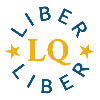The Curtin Open Knowledge Initiative
Sharing data on scholarly research performance
DOI:
https://doi.org/10.53377/lq.11544Keywords:
open knowledge, open access, research performance, diversity, equityAbstract
In the current era of worldwide competition in higher education, universities are caught up in market processes that encourage compliance with the measurement systems applied by world university rankings. Despite questions about the rankings’ methodologies and data sources, universities continue to adopt assessment and evaluation practices that require academic researchers to publish in sources indexed by the major commercial bibliographic databases used by world rankings. Building on a critique of the limited bibliometric measures and underlying assumptions of rankings, the Curtin Open Knowledge Initiative interdisciplinary research project aggregates and analyses scholarly research data including open access output from multiple open sources for more than 20,000 institutions worldwide. To understand who is creating knowledge and how diversity is enacted through the transmission of knowledge we analyse workforce demographic data. In this article, we discuss the project’s rationale, methodologies and examples of data analysis that can enable universities to make independent assessments, ask questions about rankings, and contribute to open knowledge-making and sharing. Expanding on our presentation to the LIBER Online 2021 Conference, we discuss collaboration with academic libraries and other scholarly communication stakeholders to develop and extend the open knowledge project.
Downloads

Downloads
Published
Issue
Section
License
Copyright (c) 2022 Katie Wilson, Lucy Montgomery, Cameron Neylon, Chun-Kai (Karl) Huang, Rebecca N. Handcock

This work is licensed under a Creative Commons Attribution 4.0 International License.





